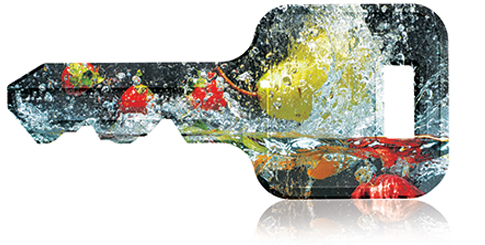All FSVP activities must be conducted by a ‘qualified’ individual. Any person handling a hazard analysis and evaluation must have training or experience, a requirement of FSMA’s Preventive Controls rule published in September 2015. Specifically, this would be “training in the development and application of risk-based preventive controls” from an FDA-recognized curriculum course or through adequate job experience in developing and implementing a food safety system.
Many importers and suppliers do not have such a person on staff, but with the advent of FSMA, there are a number of companies and individuals in the fresh produce industry offering these services. Dr. McEntire notes the abundance of technical experts who can help, but recommends importers talk to their trading partners, and look into their hazard evaluations as a starting point.
And if a third-party auditor is hired to perform the required evaluation and activities, importers are still legally obligated to review and assess the relevant documentation—therefore, importers will still need either sufficient knowledge, a qualified staff member, or a consultant to review the documentation of the third party.
For help, importers can turn to the FDA-funded Food Safety Preventive Controls Alliance, which has developed FSVP training to serve as a benchmark for other groups developing equivalent training programs. Additionally, although importers are not subject to FSMA’s Preventive Controls Rule unless they manufacture, process, pack, or hold food, the Alliance is encouraging all importers to take a Preventive Controls training course.
Modifications and Exemptions
For very small importers, or companies importing from small suppliers, there are far less stringent FSVP requirements. The same is true for companies importing produce from countries with which the United States has a preferential trade agreement, called a ‘systems recognition arrangement’ (see below).
Very small importers are defined as those with less than $1 million a year in human food sales. Facilities that qualify as very small suppliers include farms with three-year average annual produce sales of $25,000 or less, or growers exempt under the Produce Safety rule, and facilities that qualify for modified requirements under the Preventive Controls rule.
“Importers in these categories do not have to conduct hazard analyses,” confirms Salas. Nevertheless, she stresses, importers must still “get written assurance the supplier is in compliance.” In addition, small suppliers eligible for the exemption must have their status verified annually, and importers must still evaluate each small supplier’s compliance history.
The other exempt category is for suppliers of fresh produce from Canada and New Zealand. The U.S. has signed a ‘systems recognition arrangement’ with these countries, acknowledging that their food safety systems are comparable to the United States. Importers must, however, document not only that the imported food meets FSVP-modified requirements, but that the foreign supplier is covered by and in good standing with their country’s food safety program.



